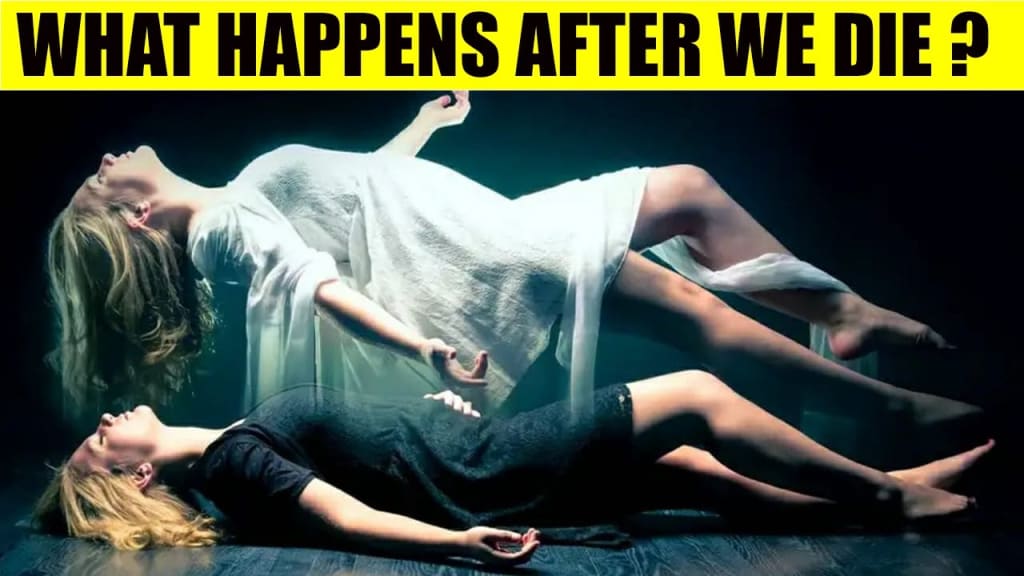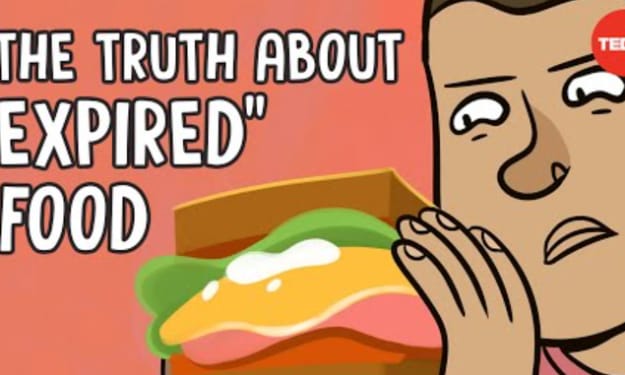What Happens When We Die?
Exploring the Mysteries Beyond A Journey into the Unknown Afterlife.

WHAT HAPPENS WHEN YOU DIE?
Whether it's a family member, a pet, or your own eventual demise, death is something we all have to cope with in our lives. In truth. In the world, almost 100 individuals pass away every minute. What occurs after death, though?
Your body uses its final breath of oxygen just before you pass away, and your brain quits functioning. while neurons cease to function. Your brain quits making the chemicals that control body processes. The muscles relax, particularly the sphincter muscles, which increases the likelihood of urination or feces, but other bodily systems may continue operating for a brief period of time due to the usage of ATP, the body's major source of energy.
The paleness of death that is visible on the deceased's skin is caused by diminished blood flow via the capillaries, which occurs 15–25 minutes after death. Gravity draws blood into the lower part of the body because there is no longer any active propulsion of blood through your body due to the failure of the heart. The skin turns from red to violet few hours after the blood was drawn, and the shift reaches its peak within 12 hours. This is one method used by coroners and forensic investigators to pinpoint the exact moment of death and the location of the body.
The condition known as rigor mortis develops within 3–6 hours. As your body runs out of energy sources, calcium will flow from decaying organ cells into your muscle cells, where it will connect to proteins that cause your muscles to spasm. causing uncontrollable muscle tension and stiffness, which in any event lasts for a period of 24 to 48 hours. Up until now, your body would slowly start to deteriorate as well unless it was chemically embalmed or preserved in some other way. Without adequate blood flow, dead cells build up and, together with carbon dioxide, raise the pH of the tissue. The cell membrane becomes weakened as a result of all of action, it eventually ruptures, releasing its cytosolic juice, which includes activating
There are also roughly 100 trillion germs that take great pleasure in your body's degeneration. The abdominal cavity's underground organs start to be eaten by the abiotic bacteria in the gastrointestinal system. The state in which things become odoriferous is known as putrefaction or the rotting process. Insects like mites, carrion beetles, and great blue flies are drawn to the decomposing flesh by the exceedingly unpleasant gas created by bacteria when amino acids are broken down, and these insects deposit their eggs there. The larva, or myocyte, feeds the tissue to survive until it becomes completely mature when the eggs hatch within a day.
These mycelium (larvae) can destroy up to 60% of the body's tissues after a few of weeks, creating pits that let putrefactive fluids and gases escape. Beetle larvae, protozoa, and fungus are all attacked by froth fermentation between 20 and 50 days. Dry decay is the term for this process, which can last up to a year but moves more quickly in hotter environments. The remains of various bodily parts, including the remains of bones, have been consumed by plants and animals over time. In the end, every component of the body is subject to these factors if left unchecked. It will disintegrate, and the core pieces will be recycled.
In the intricate tapestry of life and death, the process of passing away unveils a series of transformations within the physical realm. The journey from the final breath to the embrace of decay is a reminder of the cyclical nature of existence, where every component finds its place in the eternal cycle of renewal.
Before passing away, most people (5 people) regret their actions. It's fascinating to observe how people reflect on their final moments.





Comments
There are no comments for this story
Be the first to respond and start the conversation.